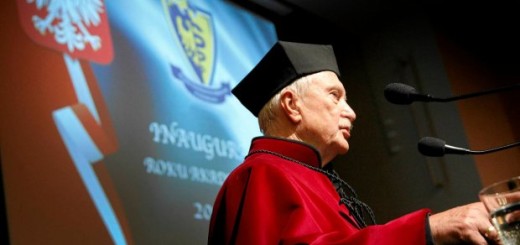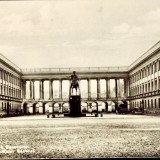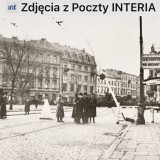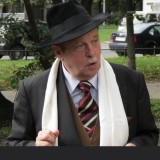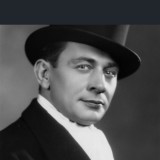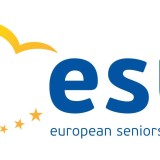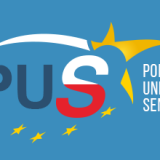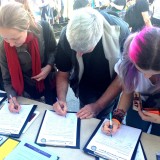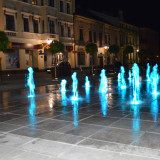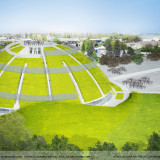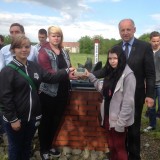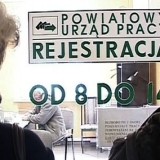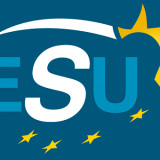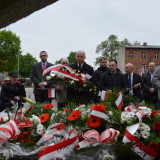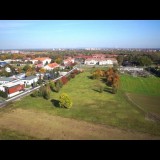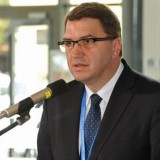Newsletter ESU 149
Dostępne tylko wersje w języku niemieckim i angielskim.
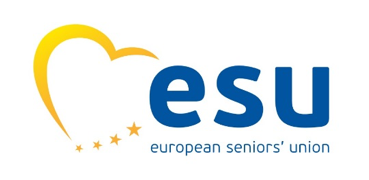
EUROPÄISCHE SENIOREN UNION (ESU) EUROPEAN SENIORS´UNION (ESU)
Newsletter SENIOR INTERNATIONAL Nr. 149 (deutsch) 29.Mai 2017
Alle NATO- und EU-Mitgliedsstaaten gehören jetzt der Anti-IS-Koalition an, stellten Politiker am 26. Mai in Brüssel erleichtert fest. Parallel zur Einweihung eines neuen NATO-Hauptquartiers wurde Montenegro mit Wirkung vom 5. Juni als 29. Staat in die Nordatlantikpakt-Organisation (NATO) aufgenommen. Am NATO-Sitz sind nun auch Denkmäler aus der Zeit des Kalten Krieges wie Reste der „Berliner Mauer“ (1961-1989) zu besichtigen.
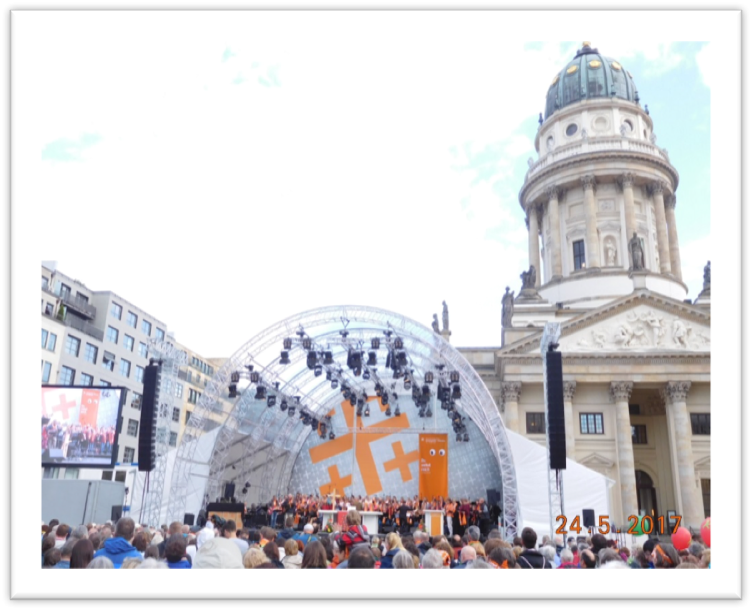
Wo sich sonntags Tausende unter dem Motto „Pulse for Europe“ versammeln, feierten am 24. Mai Berliner und Gäste aus aller Welt einen Gottesdienst zur Eröffnung des Ev. Kirchentages im Jahr des Reformationsjubiläums. Foto: U.W.
Im Gespräch mit Barack Obama und Bischof Bedfort-Strohm hat Dr. Angela Merkel für das politische Engagement aller Bürgerinnen und Bürger geworben. Sie sprach anlässlich des 36. Deutschen Evangelischen Kirchentages am 25. Mai vor dem Brandenburger Tor in Berlin. Wovon sie überzeugt sei, so die deutsche Kanzlerin, dafür trete sie ein – unbeschadet von Rückschlägen. Erfahrungsgemäß seien größere Veränderungen – wie etwa der Fall der Grenzen in Deutschland und Berlin – erst in größeren Zeiträumen erreichbar. Von Frau Merkel nicht auszuschließende Enttäuschungen erlebten zwei Tage später sechs der sieben Teilnehmer des Gipfels der G7-Staaten im sizialianischen Taormina. Die Erfahrungen mit dem US- Präsidenten am Sitz des NATO-Hauptquartiers und in Italien veranlassten Angela Merkel am 28. Mai in München zu der Feststellung: „Wir Europäer müssen unser Schicksal wirklich in unsere eigene Hand nehmen. Die Zeiten, in denen wir uns auf andere völlig verlassen konnten, die sind ein Stück vorbei. Das habe ich in den letzten Tagen erlebt.“ Einige Kommentatoren sprechen nach dieser Aussage bereits von einer „Zäsur in den transatlantischen Nachkriegsbeziehungen.“ Heute hat die Bundeskanzlerin ihre Einschätzung wiederholt. Dass in Frankreich mit Emmanuel Macron ein überzeugter Europäer an der Staatsspitze steht, wird in Kreisen der Europäischen Senioren Union als Hoffnungszeichen für eine zukunftsträchtige Entwicklung der EU gesehen. Macron vereinbarte heute in Paris mit Putin eine Arbeitsgruppe zum gemeinsamen Vorgehen gegen Terroristen. Die Themen Syrien und Ost-Ukraine wurden jedoch kontrovers diskutiert.
Ein Haus der Europäischen Geschichte…
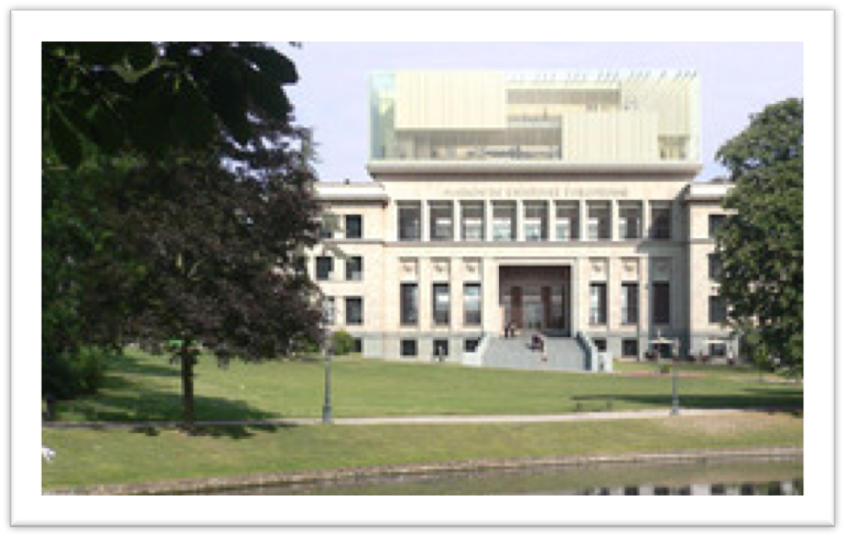
…wurde am 5. Mai von Parlamentspräsident Antonio Tajani in Brüssel eröffnet. Die Idee geht auf einen seiner Vorgänger im Amt, Dr. Hans-Gert Pöttering, zurück. Ursprünglich sollte das Haus schon 2014 übergeben werden (100 Jahre seit Beginn des Ersten Weltkrieges). Foto: JSWD Architekten
Das Robert-Schuman-Institut (RSI/Budapest) lädt für die Zeit vom 28. bis 30. Juni zu einem praktischen Training für 18- bis 25jährige aus EVP-Schwesterparteien nach Bratislava ein. Die Veranstaltung hat den Titel „Millenial Leaders – Political Communication for a New Generation“. Bisher liegen Anmeldungen aus Österreich, Kroatien, Ungarn, Slowakei und Slowenien vor. Kontakt: zsofia.erdelyi@schuman-institut.eu
Ergebnisse des 2. Internationalen Altenplans von 2002 werden auf einer Fachtagung vorgestellt und diskutiert, zu der die BAGSO (Bundesarbeitsgemeinschaft der Seniorenorganisationen) für den 27. Juni in das Familienministerium nach Bonn einlädt. Dazu sind alle Interessierten aus der Zivilgesellschaft, aus Politik und Wissenschaft willkommen. Janusz Marszalek, Präsident der Polnischen Senioren Union und Vize-Präsident der ESU, ist als einer der Referenten zum Thema „Situation älterer Menschen weltweit“ eingeladen. Kontakt:leicht@bagso.de
Erst ein Drittel der über 65jährigen Bürger besitzt und nutzt in Deutschland das Internet. Für den Vorsitzenden der CDU-Senioren-Union, Prof. Dr. Wulff, sei „Angst vor dem Unbekannten“ die Ursache. Er forderte heute die Politik auf, den älteren Mitbürgern zu helfen, mit der Technik besser zurechtzukommen. Wenn Bankauszüge nur noch digital erstellt werden, seien die „Offliner“ im Nachteil. Ähnliches gilt für Gesundheitsprogramme und günstige Angebote des Handels. Wulff fordert ein “ Konzept für die Digitalisierung in einer älter werdenden Gesellschaft“ und regt an, über ein „Digitalmuseum“ nachzudenken. Dass Volkshochschulen und Gewerkschaften spezielle Kurse anbieten, sind für Wulff erfreuliche Initiativen, die jedoch zu wenige Ältere erreichen.
IMPRESSUM
Redaktion: ulrich.winz@web.de
ESU: Rue de Commerce /Handelsstraat 10, 1000 Brussels;
Tel.: +32 2309 2866; Internet: esu@epp.eu;
Facebook.com/esu.eu; Twitter:esu_epp
 EUROPEAN SENIORS´UNION (ESU) Newsletter SENIOR INTERNATIONAL No. 149 4th June 2017
EUROPEAN SENIORS´UNION (ESU) Newsletter SENIOR INTERNATIONAL No. 149 4th June 2017
All NATO and EU Member States now belong to the anti-IS coalition, politicians stated with relief on 26th May in Brussels. In parallel with the inauguration of a new NATO headquarters, Montenegro will become the 29th state in the North Atlantic Treaty Organization (NATO) with effect from 5th June. At the NATO headquarters, monuments from the time of the Cold War can now be viewed, as well as remains of the “Berlin Wall” (1961-1989).

Where on Sundays thousands had gathered under the motto “Pulse for Europe” Berliners and guests from all over the world celebrated a service for the opening of the Evangelical Kirchentag on 24th May, in the year of the Reformation Jubilee. Photo: U.W.
In talks with Barack Obama and Bishop Bedfort-Strohm, Dr. Angela Merkel promoted the political involvement of all citizens. She spoke in front of the Brandenburger Tor in Berlin on the occasion of the 36th German Evangelical Kirchentag on 25th May. The German Chancellor said that she would promote matters of which she is convinced irrespective of setbacks. According to experience, major changes – such as the fall of the borders in Germany and Berlin – are only achievable in the long term Two days later, six of the seven participants at the summit of the G7 countries in Sicilian Taormina experienced unexpected disappointments. The experiences with the US President at the NATO headquarters and in Italy on 28th May, brought Angela Merkel in Munich to the conclusion that: “we Europeans must really take our fate into our own hands. The times when we could completely rely on others are now over. I have witnessed this in the last few days.” Following this statement, some commentators already speak of a “turning point in transatlantic post-war relations.” Today, the Chancellor has repeated her assessment. The fact that in France, Emmanuel Macron is a convinced European and head of state is seen in the circles of the European Seniors’ Union as a sign of hope for a promising, future-oriented development of the EU. Macron today agreed with Putin in Paris to work together for common action against terrorists. However, the topics of Syria and Eastern Ukraine were discussed controversially.
A House of European History …

… was opened on 5th May by Parliament President Antonio Tajani in Brussels. The idea goes back to one of his predecessors, Dr. Hans-Gert Poettering. Originally, the house was to be handed over in 2014 (100 years since the beginning of the First World War). Photo: JSWD Architects
The Robert Schuman Institute (RSI/Budapest) invites 18- to 25-year-olds from the EPP’s sister organisations in Bratislava from 28th to 30th June for practical training. The event has the title “Millennial Leaders – Political Communication for a New Generation”. Applications from Austria, Croatia, Hungary, Slovakia and Slovenia have so far been submitted. Contact: zsofia.erdelyi@schuman-institut.eu
The results of the 2nd International Policy for the Elderly of 2002 will be presented and discussed at a meeting, which will be held by BAGSO (Federal Working Group of Seniors’ Organizations) in the Ministry for Families in Bonn on 27th June. All interested parties from civil society, from politics and science are welcome. Janusz Marszalek, President of the Polish Seniors’ Union and Vice-President of ESU, has been invited as one of the speakers on “The Situation of Older People Worldwide”. Contact: leicht@bagso.de
Only a third of citizens over 65 years of age own and use the internet in Germany. For Prof. Dr. Wulff, the chairman of the CDU Seniors’ Union, the cause was “fear of the unknown.” He called on the politicians of today to help older fellow citizens to better cope with technology. If bank statements are only created digitally, the “off-liners” will be at a disadvantage. The same applies to health programs and cheap shopping offers. Wulff calls for a “concept for digitisation in an ageing society” and suggests thinking about a “digital museum”. The fact that adult education centres and trade unions offer special courses are welcome initiatives for Wulff, which, however, reach too few older people.
Editor: ulrich.winz@web.de
Translated by Margit and Seán Hawkes
ESU: Rue de Commerce /Handelsstraat 10, 1000 Brussels; Tel.: +32 2309 2866; Internet: esu@epp.eu; Facebook.com/esu.eu; Twitter:esu_epp


